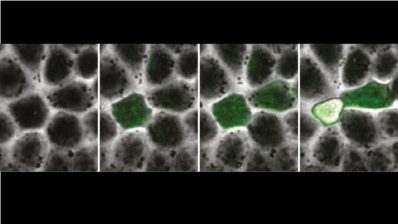Insulinomas (or pancreatic neuroendocrine tumors) are a rare type of neuroendocrine tumor that affects the beta cells of the pancreas, causing them to expand and produce excess insulin. Four people out of every million are diagnosed annually – Steve Jobs was one of them, giving visibility to this rare cancer.
Now, a new study led by Lorenzo Pasquali‘s group at the Department of Medicine and Life Sciences (MELIS-UPF) has analyzed 42 insulinomas and described the formation mechanism of these tumors. They are due to an accumulation of mutations in genes involved in the regulation of gene expression in beta cells.
“This accumulation of rare mutations converges in a change in the epigenetic profile of beta cells,” explains Mireia Ramos, co-first author of the study. Although the mutations are different in each insulinoma analysed, the new epigenetic profile that is generated is the same; one that leads to a change in the chromatin that goes from repressing to overactivating the gene expression of a series of oncogenes, growth and transcription factors and genes related to insulin production.
Beyond the importance for this tumor, pancreatic beta cells are also involved in other diseases such as diabetes mellitus. For this reason, “we are particularly interested in understanding how these cells lose control, how the expression of their genes is deregulated and insulin secretion is altered”, says Pasquali. The group is already working to better understand the mechanism by which there is an overgrowth of these cells.
Ramos-Rodríguez, M, & Subirana-Granés, M, et al; Implications of noncoding regulatory functions in the development of insulinomas. Cell Genomics (2024). doi: 10.1016/j.xgen.2024.100604






